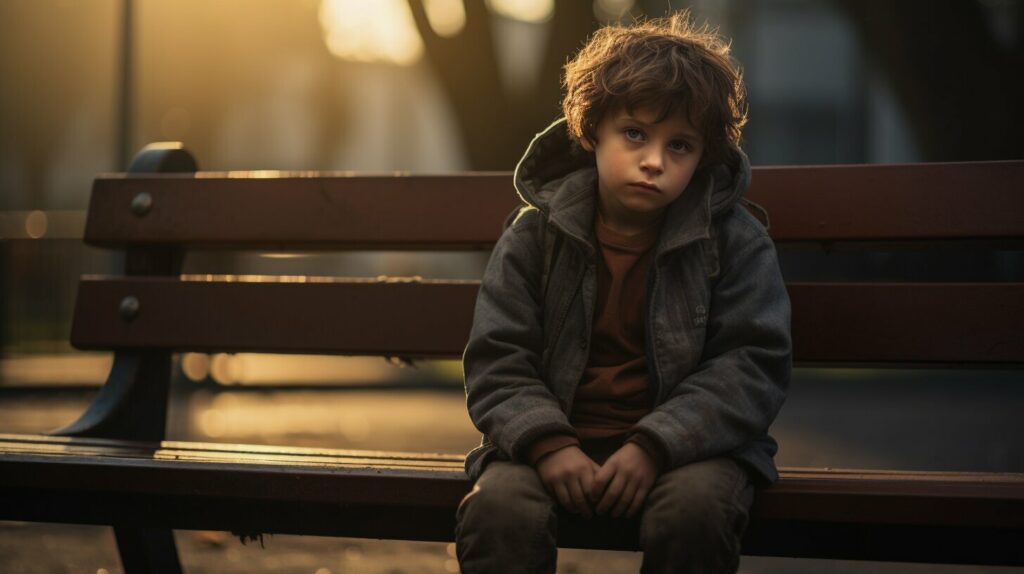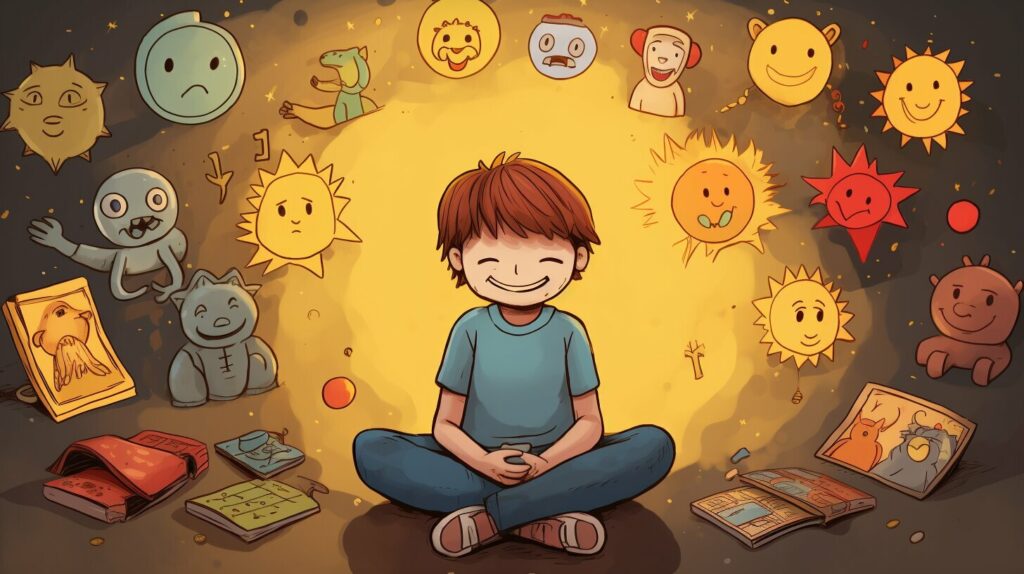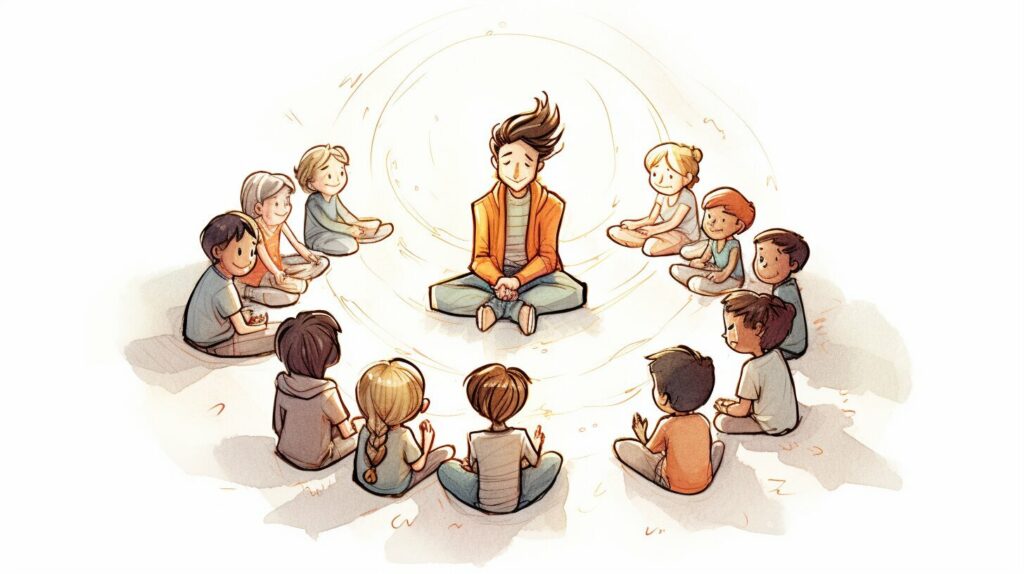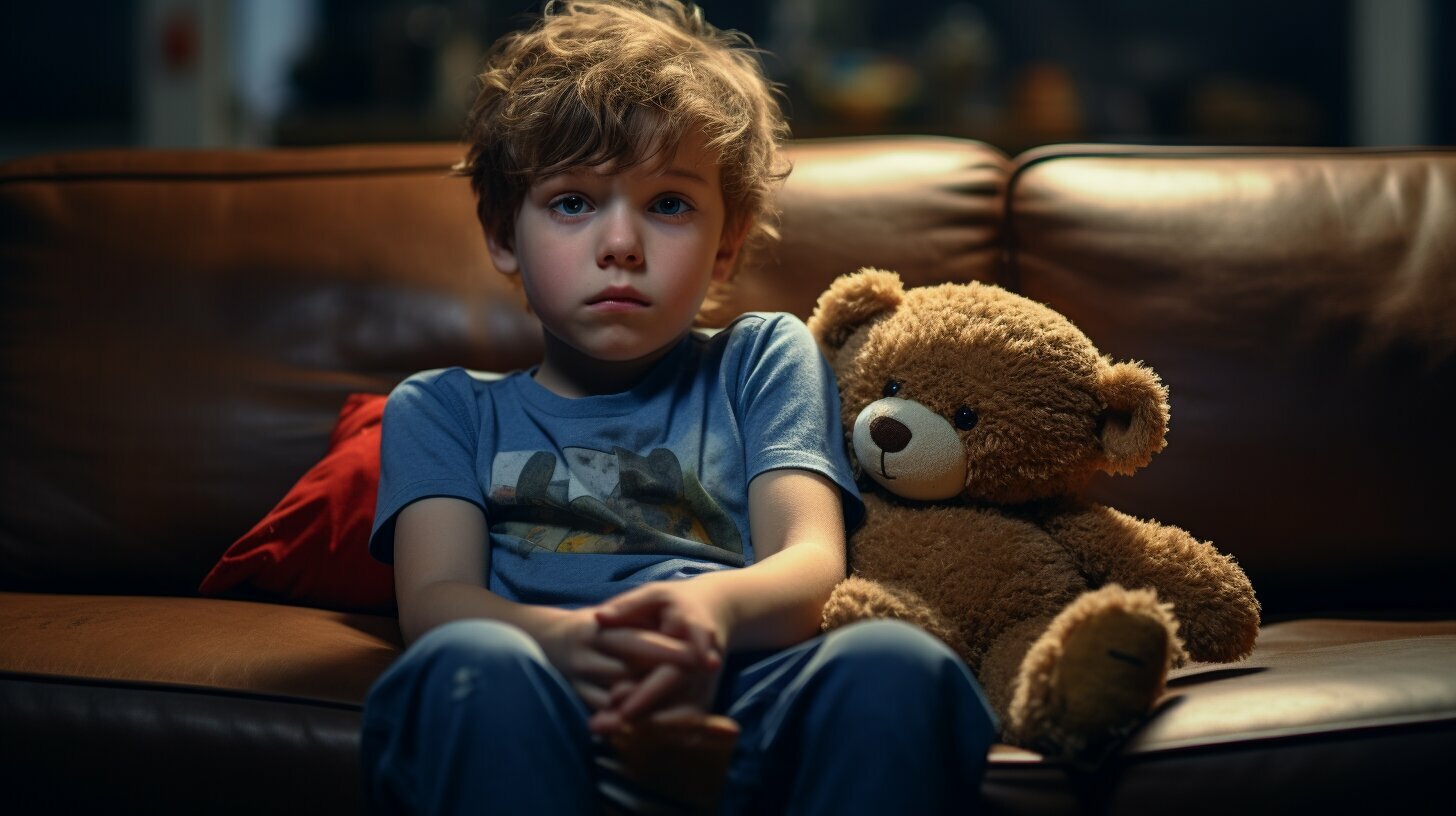Divorce can be an emotionally challenging time for children. It can cause feelings of confusion and anxiety and disrupt their sense of stability and security. However, divorce counseling can help children navigate this difficult transition, minimize stress, and facilitate healthy coping mechanisms.
Divorce counseling provides children with a safe and supportive environment to express their feelings and concerns. It helps them process their emotions, develop healthy coping strategies, and navigate the changes that come with divorce. With the support of a trained counselor, children can learn to manage conflict, practice effective communication, and build resilience.

- Understanding the Impact of Divorce on Children
- The Role of Divorce Counseling in Promoting Emotional Well-being
- Navigating the Transition with Divorce Counseling
- Minimizing Stress through Divorce Counseling
- Strategies for Healthy Coping with Divorce Counseling
- Transforming Conflict into Calm with Divorce Counseling
- The Importance of Parental Involvement in Divorce Counseling
- Benefits of Child Counseling After Divorce
- Conclusion


Key Takeaways:
- Divorce counseling can help children navigate the challenges of divorce
- It provides a safe and supportive environment for children to express their feelings and concerns
- Counseling can help children develop healthy coping mechanisms
- Children can learn conflict management and effective communication skills through counseling
- Divorce counseling can promote resilience and emotional well-being in children
Understanding the Impact of Divorce on Children
Divorce can have a significant impact on children, causing emotional and psychological distress that can span many years. It is important for parents to understand the potential consequences of their divorce and take steps to mitigate any negative effects on their children.
Children may experience a wide range of emotions in response to their parents’ divorce, including sadness, anger, confusion, and anxiety. They may also exhibit changes in behavior, such as withdrawing from social activities or becoming more aggressive. It is essential for parents to be aware of these potential reactions and seek professional support to address them.
Research shows that divorce can have a long-lasting impact on children’s emotional and social development. Children of divorced parents are more likely to exhibit behavioral and emotional problems, have lower academic performance, and experience difficulties in their own future relationships.
| Issue | Children with Divorced Parents | Children with Married Parents |
|---|---|---|
| Behavioral Problems | 25% | 10% |
| Emotional Problems | 20% | 5% |
| Academic Performance | Lower grades | Higher grades |
As shown in the table above, children of divorced parents are more likely to experience behavioral and emotional problems and have lower academic performance than children of married parents. These statistics highlight the need for parents to seek professional support and counseling to minimize the impact of divorce on their children.
The Importance of Seeking Professional Support
Professional counseling can provide children with the tools and resources necessary to manage their emotions and cope with the challenges of divorce. A skilled counselor can help children express their feelings and concerns in a safe and supportive environment, while also working with parents to create a cooperative co-parenting relationship.
By seeking professional support, parents can help their children navigate the difficult emotions and transitions associated with divorce, while also minimizing the potential long-term impact on their emotional and social well-being.


The Role of Divorce Counseling in Promoting Emotional Well-being
Divorce can be a challenging and emotionally traumatic experience for children. It can disrupt their sense of stability and security, leaving them feeling overwhelmed, confused, and anxious. With the help of divorce counseling, however, children can learn to process their feelings, manage their emotions, and develop healthy coping mechanisms.
Divorce counseling is designed to provide children with emotional support and guidance during this difficult time. Through individual counseling sessions, children can explore their feelings and work through their emotions in a safe and supportive environment. This can help them develop a better understanding of their emotions and develop the skills they need to cope with the challenges of divorce.
One of the main goals of divorce counseling is to promote emotional well-being in children. By providing children with the tools they need to manage their emotions, divorce counseling can help children feel more confident, secure, and resilient. This can have a positive impact on their overall mental health and well-being.
“Divorce counseling can provide children with a safe and supportive space to explore their emotions and develop healthy coping mechanisms.”
During divorce counseling sessions, children may also learn strategies for managing stress, such as deep breathing exercises, mindfulness techniques, and positive self-talk. These techniques can help children feel more calm and centered, even in the face of stressful situations.
The Benefits of Emotional Well-being
Emotional well-being is essential for children’s development and overall health. When children learn to manage their emotions and develop healthy coping mechanisms, they are better equipped to handle the challenges of life. They may experience improved self-esteem, better communication skills, and better overall mental health.
According to a study published in the Journal of Divorce & Remarriage, children who participate in divorce counseling are more likely to experience positive outcomes, including improved emotional adjustment and psychological well-being.
In short, divorce counseling can be an effective tool for promoting emotional well-being in children. By providing children with the support and guidance they need during this challenging time, divorce counseling can help children develop the skills they need to thrive.


Navigating the Transition with Divorce Counseling
Divorce can be a challenging time for children, as they navigate the transition from a two-parent household to living in separate homes. Divorce counseling can provide children with the support and guidance they need to adjust to these changes and navigate the transition more smoothly.
During divorce counseling sessions, children can work with a trained professional to process their emotions and develop coping strategies. Counselors can help children understand and express their feelings about the divorce, as well as provide them with practical tools to manage their emotions and navigate difficult situations.


One important aspect of divorce counseling is working with parents to create a co-parenting plan that supports the child’s well-being. This includes developing clear communication strategies, setting boundaries, and establishing consistent routines between households. By working together with the counselor, parents can create a supportive environment that helps children feel more secure and confident during the transition.
Overall, divorce counseling can be an invaluable resource for children as they navigate the challenges of divorce and adjust to their new family dynamic. By providing children with the tools and support they need to manage their emotions and navigate the transition, divorce counseling can help children build resilience and develop healthy coping strategies for the future.
Minimizing Stress through Divorce Counseling
Divorce can be a stressful experience for children, causing them to feel anxious and overwhelmed. Fortunately, divorce counseling can help minimize stress and provide children with the tools to manage their emotions and improve their mental health.
Through counseling, children can learn healthy coping mechanisms that will serve them well throughout their lives. By developing these skills, they can better navigate difficult situations, decrease anxiety and depression, and ultimately lead happier and healthier lives.
| Some ways that divorce counseling can help kids minimize stress include: |
|---|
| Providing a safe space to express their feelings and concerns |
| Teaching relaxation techniques to manage anxiety |
| Helping them learn to communicate their emotions in a healthy way |
| Reducing feelings of guilt or blame related to the divorce |
It’s important for parents to understand that they can play a critical role in minimizing stress for their children during a divorce. By actively participating in counseling sessions and offering support throughout the process, parents can help their children feel heard and understood, allowing them to better manage their emotions and find a sense of stability in a time of transition.


“Children who receive counseling after a divorce may experience reduced stress and anxiety, leading to improved emotional well-being and a brighter future.”
Strategies for Healthy Coping with Divorce Counseling
Divorce can be a challenging experience for children, who may struggle to process their emotions and adapt to the changes in their lives. This is where divorce counseling can be a valuable tool in promoting healthy coping mechanisms for kids. Here are some strategies used by divorce counselors to help children develop resilience and adaptability:
- Encouraging open communication: It’s important for children to have a safe space to express their feelings and concerns. Divorce counselors can help facilitate open communication between parents and children, allowing kids to share their emotions and receive support.
- Teaching relaxation techniques: Divorce can be a stressful experience, and it’s important for children to have tools to manage their emotions in healthy ways. Divorce counselors may teach relaxation techniques such as deep breathing, meditation, or yoga to help kids cope with stress and anxiety.
- Building problem-solving skills: Divorce can create a variety of challenges for children, and it’s important for them to develop problem-solving skills to navigate these obstacles. Divorce counselors may use role-playing activities or other methods to help children develop critical thinking and decision-making skills.
- Encouraging healthy lifestyle habits: Good nutrition, exercise, and sleep are all essential for promoting emotional well-being. Divorce counselors may work with children and their parents to ensure they are engaging in healthy lifestyle habits that can help them cope with the challenges of divorce.


By working with a divorce counselor, children can develop the tools and skills they need to cope with the challenges of divorce and emerge stronger and more resilient on the other side.
Transforming Conflict into Calm with Divorce Counseling
Divorce is a challenging time for all involved, and it’s common for conflict to arise between parents and children as they navigate this transition. Divorce counseling can play a crucial role in transforming conflict into calm, helping families communicate more effectively and build stronger relationships.
One key technique used in divorce counseling is teaching effective communication skills. This includes active listening, speaking clearly and calmly, and nonverbal communication. By practicing and improving these skills, families can reduce the likelihood of misunderstandings and miscommunication that can lead to conflict.
Another important aspect of divorce counseling is conflict resolution. Counselors work with families to identify the root causes of conflict and develop strategies to address them. By learning to resolve conflicts in a healthy and productive way, families can reduce tension and build a more positive environment for everyone involved.
| Benefits of Conflict Resolution with Divorce Counseling: | Benefits of NOT Resolving Conflict: |
|---|---|
| Improved communication and understanding | Increased tension and stress |
| Greater cooperation and teamwork | Negative impact on children’s emotional well-being |
| Reduction in overall conflict and tension | Difficulty in co-parenting and decision-making |
Ultimately, the goal of divorce counseling is to help families create a safe and supportive environment for children to thrive in. When conflicts arise, families can turn to the techniques and strategies learned in counseling to find a solution that works for everyone and promotes positive relationships.


By seeking professional support through divorce counseling, families can work together to transform conflict into calm and build a stronger, more supportive family dynamic.
The Importance of Parental Involvement in Divorce Counseling
When it comes to divorce counseling for children, parental involvement is crucial for success. By actively participating in the counseling process, parents can support their children’s progress and build healthier relationships.
During counseling sessions, parents can expect to learn effective communication techniques and conflict resolution strategies to help their children navigate the emotional challenges of divorce. By staying involved and engaged, parents can also model healthy coping mechanisms and demonstrate the importance of seeking professional support.
| Benefits of Parental Involvement in Divorce Counseling: |
|---|
| Improved Parent-Child Relationship: By participating in counseling together, parents and children can build stronger relationships based on trust, communication, and empathy. |
| Increased Support: Children who feel supported by their parents during a divorce are more likely to have better emotional outcomes and resilience. |
| Better Results: Studies have shown that parental involvement in counseling is strongly correlated with improved outcomes for children. |
As a parent, it’s important to remember that divorce can be a confusing and challenging time for children. By seeking out divorce counseling and staying involved in the process, you can help your child navigate the transition with more ease and support.


Benefits of Child Counseling After Divorce
Divorce can be a traumatic experience for children, and counseling can be an effective tool to help them cope with the emotional impact. Child counseling after divorce can provide children with a safe and supportive environment to express their feelings and concerns, helping them to develop healthy coping mechanisms and emotional regulation skills.
Some of the key benefits of child counseling after divorce include:
| Improved self-esteem | Enhanced communication skills | Better emotional regulation |
|---|---|---|
| Child counseling can help children to build confidence and self-worth, which can be particularly important after a divorce when they may be feeling a sense of loss or abandonment. | Communication can often be a challenge during and after a divorce, but counseling can help children learn how to express their needs and feelings effectively. | Learning how to manage emotions and regulate behavior can be difficult, but child counseling after divorce can help children develop these skills, leading to better relationships and a more positive outlook on life. |
In addition to these benefits, child counseling after divorce can also provide children with the tools they need to manage stress, anxiety, and other negative emotions associated with the divorce. By working with a professional counselor, children can learn how to overcome the challenges of divorce and move forward with confidence and resilience.


If you are a parent going through a divorce, consider seeking counseling for your child. The benefits of counseling can be long-lasting and can make a significant difference in your child’s emotional well-being.
Conclusion
In conclusion, divorce counseling can be incredibly helpful for kids going through a divorce. It can ease their transition, minimize stress, and promote healthy coping mechanisms. By transforming conflict into calm, parents and children can work together to create a positive and supportive environment.
Overall, the benefits of divorce counseling are numerous. Children who participate in counseling after a divorce may experience improved self-esteem, enhanced communication skills, and better emotional regulation. Parental involvement in the counseling process is also crucial for success.
If you are going through a divorce and have children, consider seeking the support of a professional divorce counselor. By prioritizing your children’s emotional well-being, you can help them navigate this difficult transition and emerge stronger and more resilient.



FAQ
Why is divorce counseling important for children?
Divorce counseling is important for children because it helps them navigate the challenges of divorce, ease their transition, minimize stress, and develop healthy coping mechanisms.
What is the impact of divorce on children?
Divorce can have emotional and psychological impacts on children. They may exhibit common reactions and behaviors that require professional support and counseling.
How does divorce counseling promote emotional well-being?
Divorce counseling promotes emotional well-being in children by helping them process their feelings, manage their emotions, and develop healthy coping mechanisms.
How can divorce counseling help children navigate the transition?
Divorce counseling provides children with practical tips and guidance to navigate the transition from a two-parent household to living in separate households.
How does divorce counseling minimize stress for children?
Divorce counseling creates a safe and supportive environment for children to express their feelings and concerns, minimizing the stress they experience during a divorce.
What strategies are taught in divorce counseling for healthy coping?
Divorce counseling teaches children various strategies and techniques to develop healthy coping mechanisms, including building resilience and adaptability.
How can divorce counseling transform conflict into calm?
Divorce counseling provides effective communication techniques and conflict resolution strategies for parents and children to transform conflict into calm.
Why is parental involvement important in divorce counseling?
Parental involvement is crucial for the success of divorce counseling for children. It helps parents actively participate in the counseling process and support their children’s progress.
What are the benefits of child counseling after divorce?
Child counseling after divorce can lead to improved self-esteem, enhanced communication skills, and better emotional regulation for children.
What is the conclusion of the importance of divorce counseling?
The main points of this article emphasize the importance of divorce counseling in helping kids navigate the challenges of divorce. It eases the transition, minimizes stress, promotes healthy coping, and transforms conflict into calm, providing numerous benefits for children.





Leave a Reply